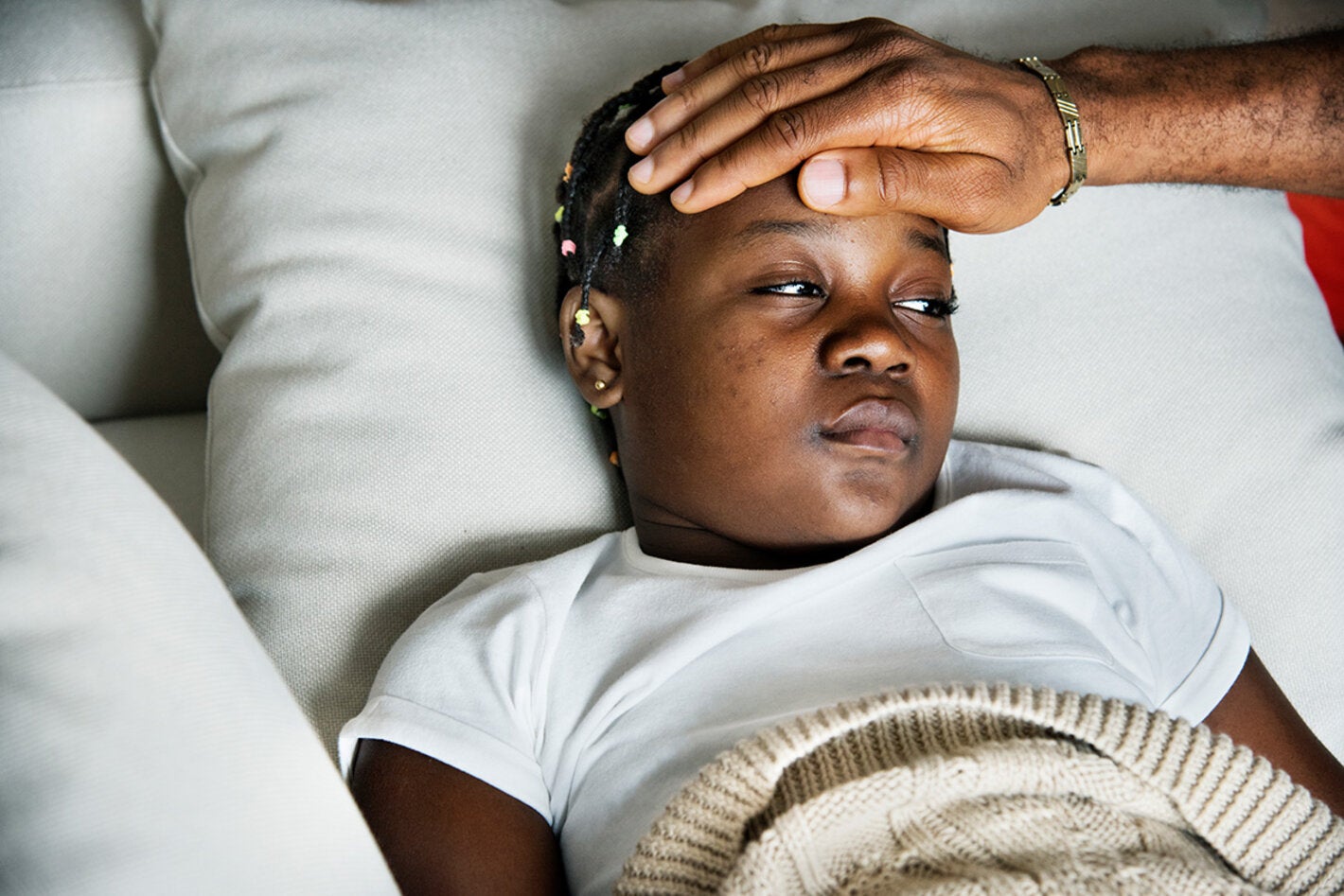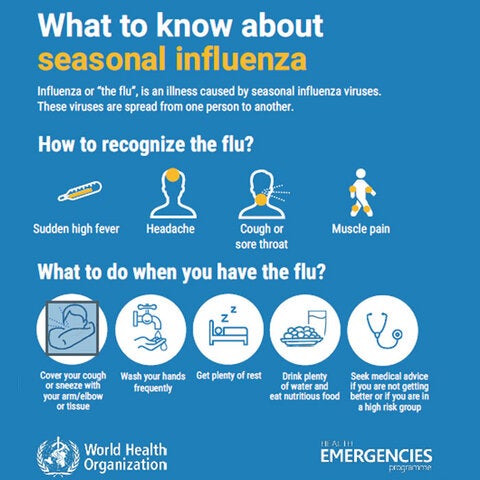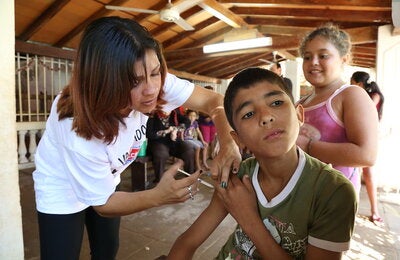
Kingston, 10 April 2019 (PAHO/WHO)—Jamaica’s Ministry of Health has put the island on alert for influenza. This, in response to a marked increase in the number of cases of flu-like illnesses including fever and respiratory conditions.
Influenza or ‘the flu’ is a communicable virus and persons at high risk are encouraged to take special care in preventing infection. As we take care of others, let us also be extra vigilant in taking care of ourselves.
Please cover your cough or sneeze with your elbow or tissue, wash hands frequently, eat and rest well, drink plenty of water and see your primary care physician if symptoms persist(i).
Through PAHO’s support and facilitation, the Flu vaccine was made available to UN agency staff and their dependents in November 2018. From our support the Ministry continues to offer the vaccine, free of cost in the public health system to the following high-priority groups:
- Healthcare workers;
- Children and the elderly with chronic illnesses;
- Pregnant women;
- Individuals who are institutionalized or in state care; and
- Non-health frontline workers.
Be reminded of referring health facilities for UN Staff and dependents
- The Tony Thwaites Wing, UHWI
- Andrews Memorial Hospital
More about Influenza
The Pathogen
There are 4 types of seasonal influenza viruses, types A, B, C and D. Influenza A and B viruses circulate and cause seasonal epidemics of disease.
The data currently available from National Influenza Surveillance in Jamaica (2019) suggested the circulation of Influenza 'A' on the island.
— Read more about the different types of influenza...
Signs and symptoms
Seasonal influenza is characterized by a sudden onset of fever, cough (usually dry), headache, muscle and joint pain, severe malaise (feeling unwell), sore throat and a runny nose.
The cough can be severe and can last 2 or more weeks. Most people recover from a fever and other symptoms within a week without requiring medical attention.
But influenza can cause severe illness or death especially in people at high risk (see below).
Illnesses range from mild to severe and even death. Hospitalization and death occur mainly among high-risk groups.
Summary signs and symptoms
- Fever/chills
- Sore throat
- Muscle aches
- Fatigue
- Cough
- Headache
- Runny or stuffy nose
Epidemiology
All age groups can be affected. Some groups are more at risk than others.
- pregnant women at any stage of pregnancy
- children younger than 5 years
- people older than 65 years
- people with increased risk of exposure to influenza, which includes health care workers.
- people with chronic medical conditions such as HIV/AIDS, asthma, heart and lung diseases and diabetes
Seasonal influenza spreads easily, with rapid transmission in crowded areas including schools and nursing homes. When an infected person coughs or sneezes, droplets containing viruses (infectious droplets) are dispersed into the air and can spread up to one meter, and infect persons in close proximity who breathe these droplets in. The virus can also be spread by hands contaminated with influenza viruses.
The time from infection to illness (incubation period) is about 2 days, but ranges from one to four days.
Diagnosis and Treatment
Patients with uncomplicated seasonal influenza:
Patients that are not from a high-risk group should be managed with symptomatic treatment and are advised, if symptomatic, to stay home in order to minimize the risk of infecting others in the community.
Treatment focuses on relieving symptoms of influenza such as fever. Patients should monitor themselves to detect if their condition deteriorates and seek medical attention. Patients that are known to be in a group at high risk for developing severe or complicated illness, (see above) as well as patients with severe or progressive clinical illness associated with suspected or confirmed influenza virus infection (i.e. clinical syndromes of pneumonia, sepsis or exacerbation of chronic underlying diseases) should be treated with antivirals, in addition to symptomatic treatment as soon as possible.
IMPORTANT: During the period of Dengue outbreak, only use Paracetamol for treatment of fever or pain unless advised differently by your medical practitioner.
Prevention
The most effective way to prevent flu is annual vaccination. Vaccination is especially important for people at high risk of influenza complications, and for people who live with or care for the people at high risk.
Among healthy adults, influenza vaccine provides protection, even when circulating viruses do not exactly match the vaccine viruses. However, among the elderly, influenza vaccination may be less effective in preventing illness but reduces the severity of disease and incidence of complications and deaths.
WHO recommends annual vaccination for:
- pregnant women at any stage of pregnancy
- children aged between 6 months to 5 years
- elderly individuals (more than 65 years)
- individuals with chronic medical conditions
Apart from vaccination and antiviral treatment, public health management includes personal protective measures like:
- Regular hand hygiene with water and soap and proper drying of the hands or alcohol-based solution (hand sanitizer)
- Early self-isolation of those feeling unwell, feverish and having other symptoms of influenza
- Avoiding close contact with sick people
- Practicing good respiratory hygiene:
- Covering mouth and nose when coughing or sneezing, using tissues and disposing of them correctly, and perform hand hygiene
- Avoiding touching one’s eyes, nose or mouth[ii]
— Test your knowledge with the WHO Influenza Online Course...
[i] WHO Influenza Infographics available online at: https://www.who.int/mediacentre/infographic/influenza/influenza-en-7february2018.pdf?ua=1
[ii] WHO Influenza Fact sheet available online at: https://www.who.int/en/news-room/fact-sheets/detail/influenza-(seasonal)




